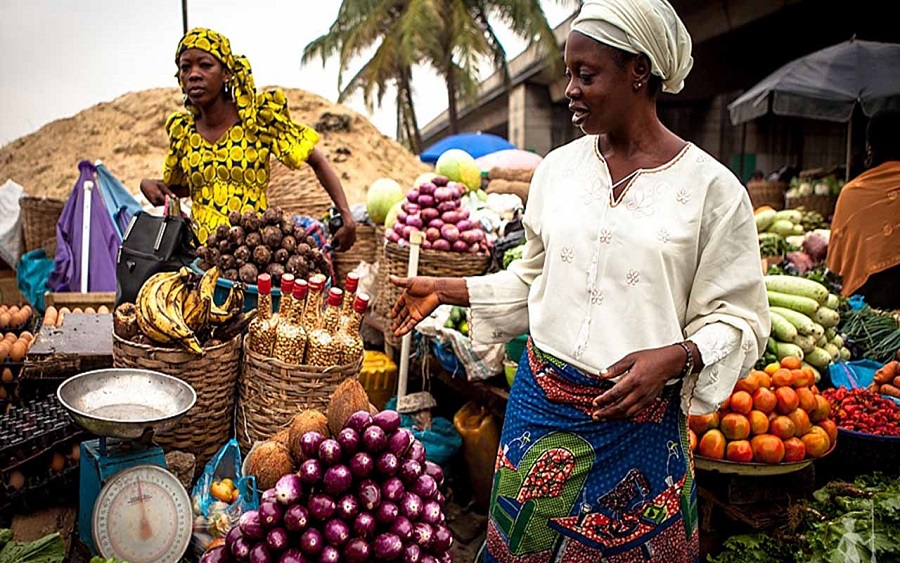Nigeria’s inflation rate rose further in June 2020 to 12.56% (year-on-year), 0.16% points higher than the rate recorded in May 2020 (12.4%). This is according to the latest CPI report, released by the Nigerian Bureau of Statistics.
The report also showed that composite food index rose to 15.18% compared to 15.04% recorded in May 2020 while Core inflation, which excludes the prices of volatile agricultural produce that stood at 10.13% in June 2020 compared to 10.12% recorded in May 2020.
READ MORE: Bitcoin is giving better returns than the Nigerian stock market
Food inflation
The composite food index stood at 15.18%, 0.14% points higher compared to 15.04% recorded in May 2020. Also, On month-on-month basis, the food sub-index increased by 1.48% in June 2020, up by 0.06% points from 1.42% recorded in May 2020.
This rise in the food index was caused by increases in prices of Bread and Cereals, Potatoes, Yam and other tubers, Fruits, Oils and Fats, Meat, Fish and Vegetables.
Core inflation
The ”All items less farm produce” or Core inflation, which excludes the prices of volatile agricultural
produce stood at 10.13% in June 2020, up by 0.01% when compared with 10.12% recorded in May 2020.
On month-on-month basis, the core sub-index increased by 0.86% in June 2020. This was down by 0.02% when compared with 0.88% increase recorded in May 2020.
Inflation drivers: The highest increases were recorded in prices of Medical services, Hospital services, Passenger transport by road, Pharmaceutical products, Motor cars, Paramedical services, Maintenance and repair of personal transport equipment, Bicycles, Motor cycles, Vehicle spare parts and Other services in respect of personal transport equipment.

Worst hit states
In June 2020, all items inflation on year on year basis was highest in Bauchi (15.02%) followed by Sokoto state (14.88% rate), Ebonyi (14.6%) others include Plateau (14.49%) and Taraba state (13.95%).
Explore Data Research from Nairametrics by Visiting Nairametrics
On the other hand, Kwara state (10.03%) recorded the least all items inflation rate (year-on-year) followed by Lagos (10.78%). Others on the list include; Cross River (10.95%), Abuja (11.02%) and Borno (11.11%).
In terms of food inflation on a year on year basis, Sokoto state (17.88%) recorded the highest followed by Plateau (17.04%) and Abuja (16.82%), while Bauchi (12.86%), Ogun (13.18%), and Lagos (13.46%) recorded the slowest rise.
What this latest inflation rate means is that the purchasing power of consumers has further worsened and their ability to afford the same quantity of goods or services has reduced significantly.













The issue of price control in this country at this trying time is so annoying and frustrating… And the state and fed govt aren’t doing anything about it, just bcus the problem of price inflation only bothers the masses (ones who have to struggle for their daily meals every blessed day) this is a matter that needs the attention of our so called leaders who always claim fighting for our rights.
lack of an active price control measures is one of the big problems we’re facing in Nigeria….like it or not (dis statistics of yours is far behind what we are facing right now, cuz i can tell that right now we are facing a more that 30-35% increase on agricultural produce compared to its actually price in the first quarter of the year before the so called C-19 Pandemic.